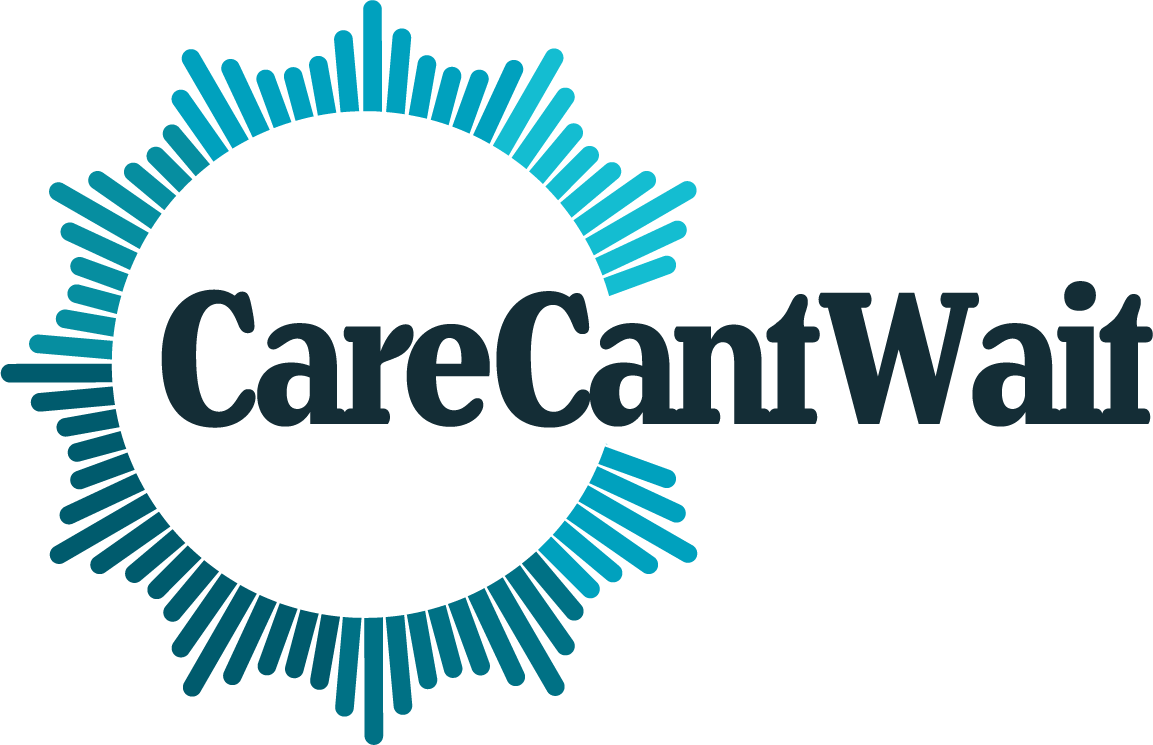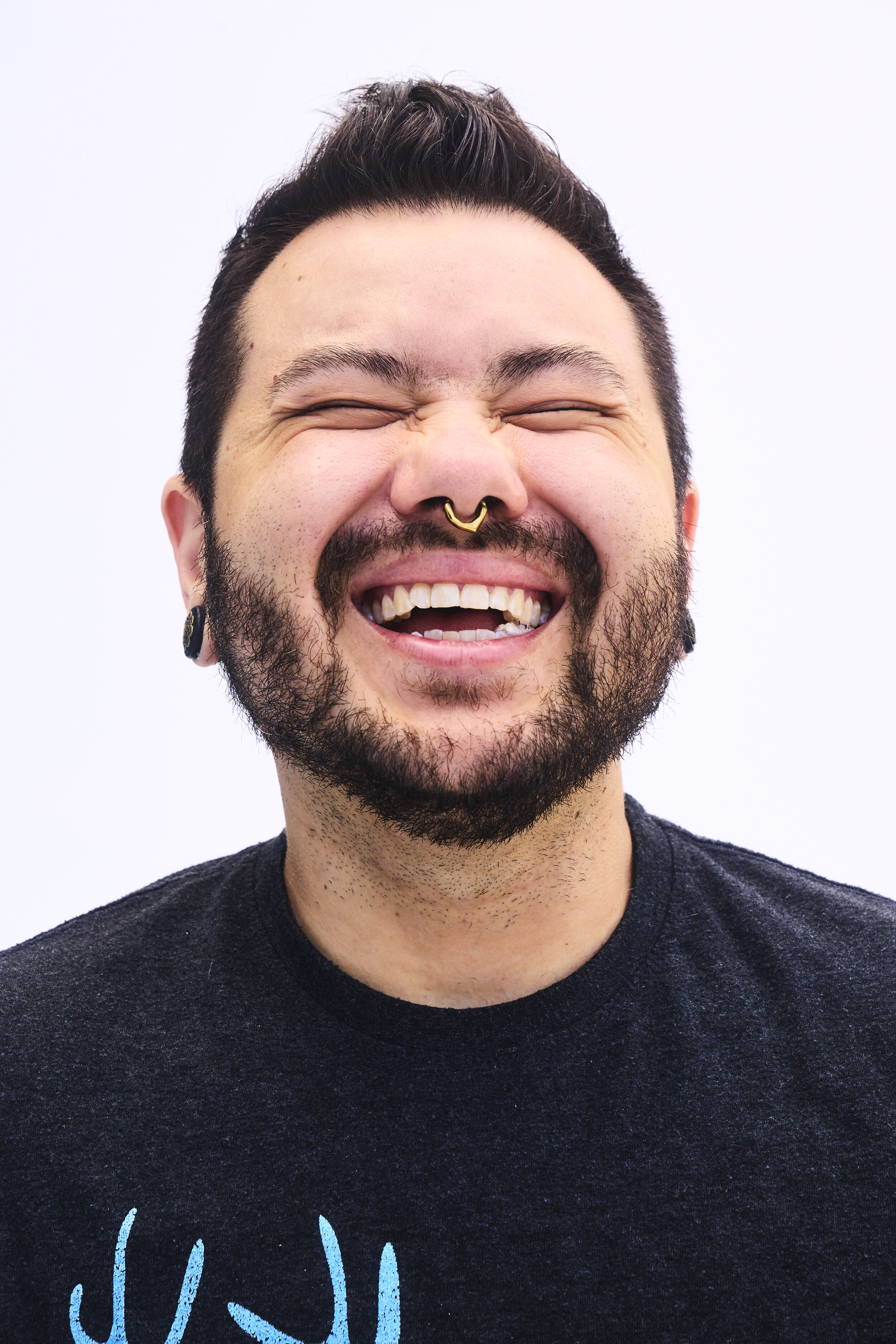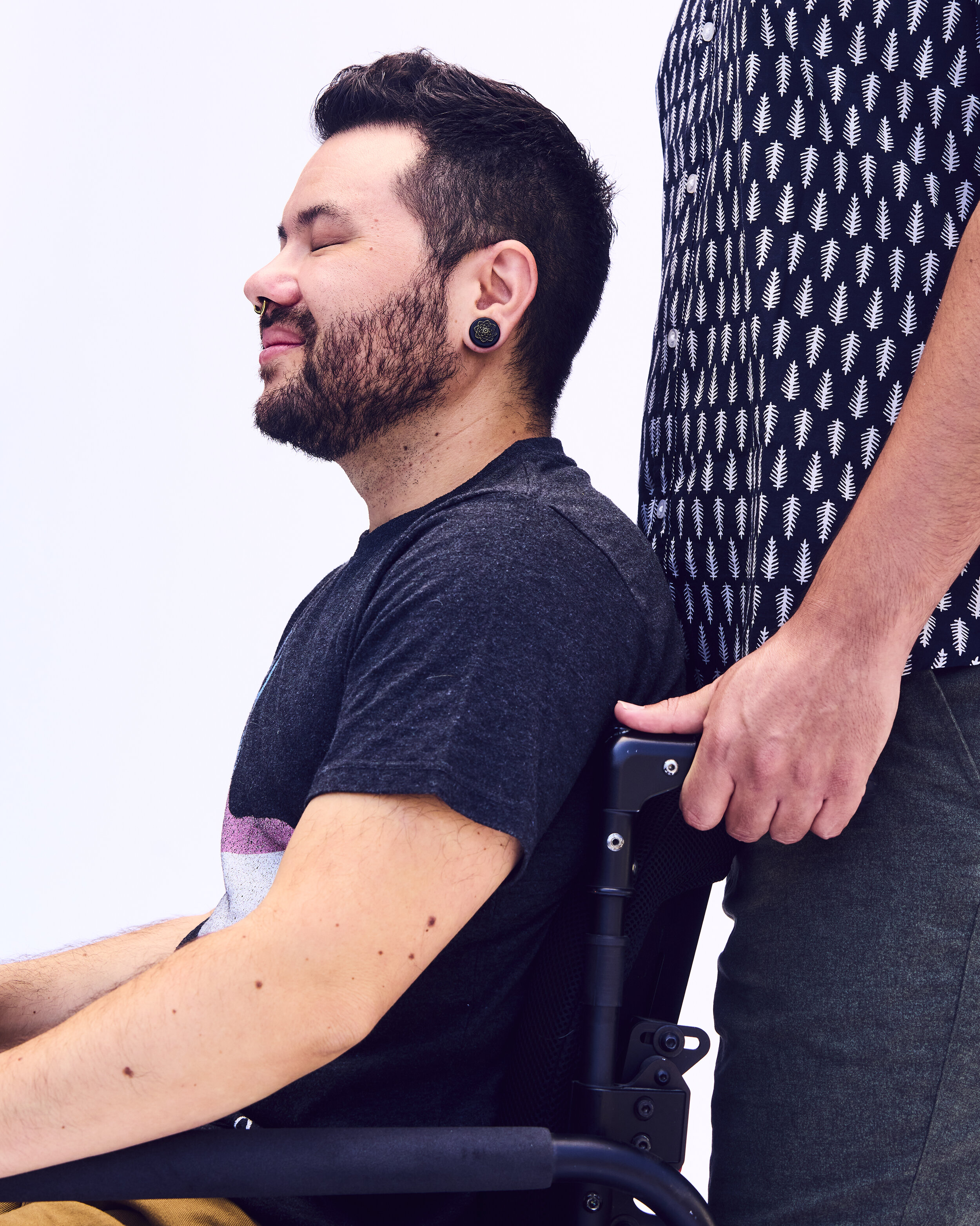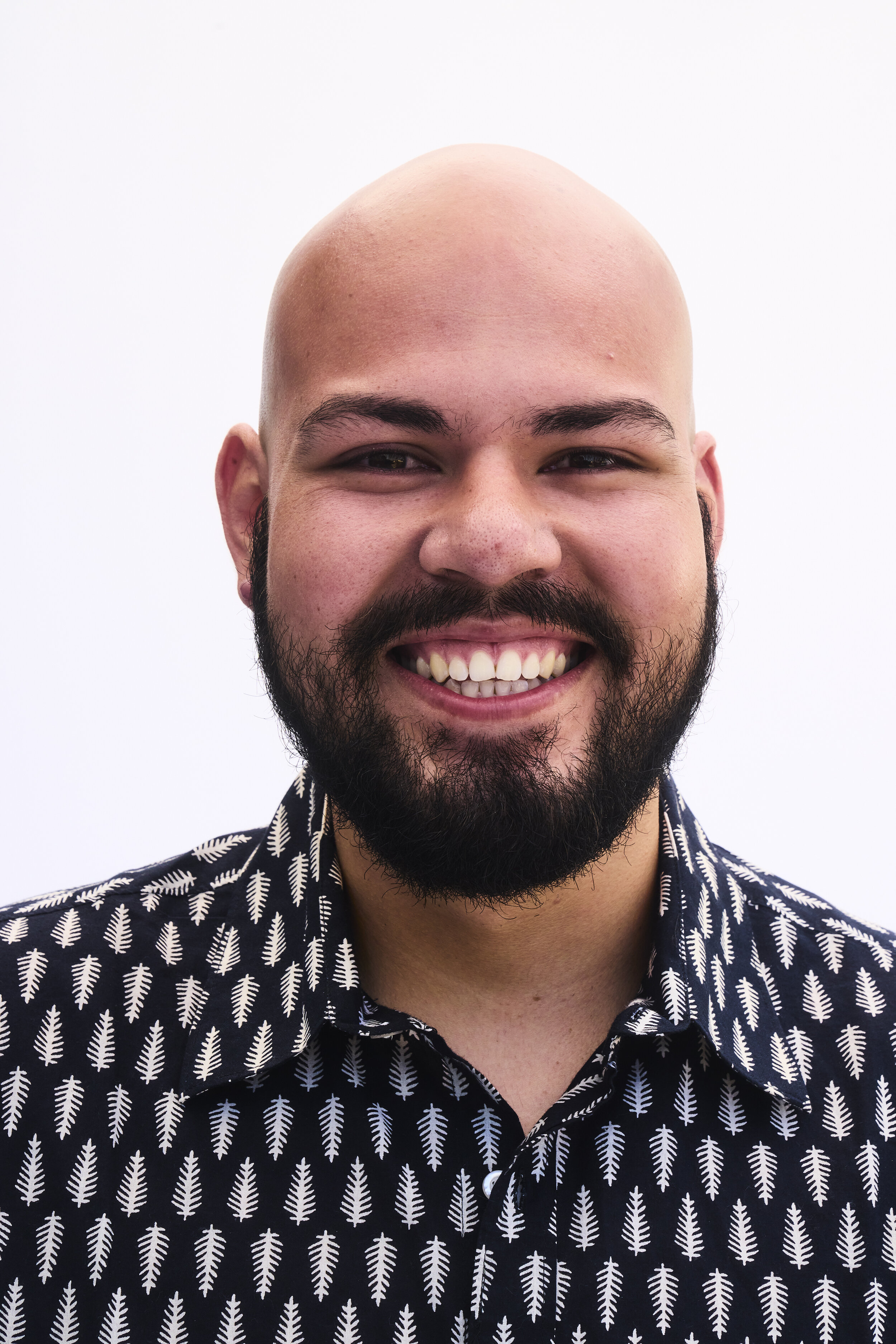Care Team Bios
Meet Jake Jakubowski
Originally from the South Bay of Los Angeles, Jake Jakubowski is a Japanese and Polish 34 year old queer and trans man living with chronic pain, fatigue, CPTSD and mobility issues. Jake has worked hard to build a wide network to support his care needs, including his friend and roommate Armando Perez. Jake loves to paint, play Dungeons and Dragons with Armando and their friends, read indie comic books and has a spunky little dog named Scruffy.
Meet Armando Perez
Originally from the San Fernando Valley of Los Angeles, Armando Perez is a 26 year old Queer and Latinx caregiver supporting his friend and roommate Jake Jakubowski. Armando attended Grinnell College and received a double major in Gender, Women's, Sexuality Studies and Sociology. He currently works in HIV prevention as a PrEP and PEP Navigator in East LA. In his free time, Armando enjoys playing dungeons and dragons and watching dungeons and dragons shows with Jake.
Interview Transcript
Jake: My name is Jake Jakubowski. Armando is my close friend, roommate, caregiver and ex-boyfriend. Armando is hilarious and full of so much joyful energy and is just a pleasure to be around.
Armando: My name is Armando Perez. I currently work as a PrEP and PEP navigator at a clinic in East L.A.. If I were to describe Jake, I would say a pain in my ass — no, I’m kidding. I love Jake very much. I really enjoy him. And his company is great. He's very funny. He's very thoughtful, very communicative, very fun person to be around. And he's just a great and caring individual overall.
Jake: Having Armando as my caregiver is a very vulnerable experience. Before we were living together, I was living with my parents in various capacities and so they were doing most of the care work, which is a little bit of a different dynamic. Right, because they've been taking care of me since I was little. And so entering into a more independent living situation and relying on someone who is not family has been a big learning curve and growth step for me. Armando always makes me feel really good and really comfortable being able to do that. You know I think one of the ways, especially that I take care of Armando definitely more emotional and social than physical support. I'm always checking in with how he's doing or talking to him about what's going on at work or what's happening with his new boyfriend.
Armando: They definitely provide care for me in that way in terms of like I don't even recognize it, like, oh, I should take a moment to like, really how am I how am I doing? You're right. That is a good question.
Jake: For me right now, caregiving from Armando is just so essential I wouldn't be able to live outside of my parents' house without it. It's just all of those things that you need to happen in my life that I couldn't do myself if I was alone. It really allows me to function. It allows me to live my life well and with my needs met
Armando: to make sure that it creates an environment where if Jake does need something that he's able to communicate with me. So even that in and of itself is like the foundation to be able to provide care to someone. There's so much to it. It's just it's not just the manual stuff. It's just it's all the emotional. It's the social. It's the mental. Make sure that his orders are the needs are being met beyond just, you know, don't forget to take your medication if you need to. It's so much more holistic than just that.
Jake: You know, the way that work and who has access to getting care over the systems that you have to go through in order to get that care work is massively difficult to navigate. I know that I'm in such a privileged position to be able to get the care that I'm getting. And even then, I still need more, I think, to fully live my life well. I think that for equity to happen, those barriers to access will have to come down or become easier, I think, to be a more streamlined process with less class barriers, less educational bureaucratic barriers, even with other people support filling out those forms, getting all the right wording and getting all the right documentation and getting all the whatever, all of that cost time and all of that costs money and energy that I think a lot of disabled people don't have. Biden's Infrastructure Bill would allow me to access more care and also not worry so much about providing care for my parents in the future who are going to need it, anything that would support them and support me but give me so much more peace of mind, then I wouldn't have so worried about the coming years.
Armando: Of the many lessons I have learned from providing and giving care to Jake is acknowledging that anyone and everyone may need care and at some point in their life.
Jake: Accepting that I need care. I've had to do a lot of work around confidence and knowing that I'm worthy and that everyone is worthy of support and care when they need it.
Armando: One of the most joyful parts about our relationship is I get to be around Jake all the time. I really value our time together and everything that we're able to do together, being able to be around someone I care for very deeply, who I know cares for me. And our relationship is tremendous. And it's a really, really positive for both of us. It's just nice to have a person like that.
Jake: I love that we just get to be there for each other. And I constantly feel joy from his presence, of the companionship that we have. I wouldn't trade Armando for anyone else in the whole world.








